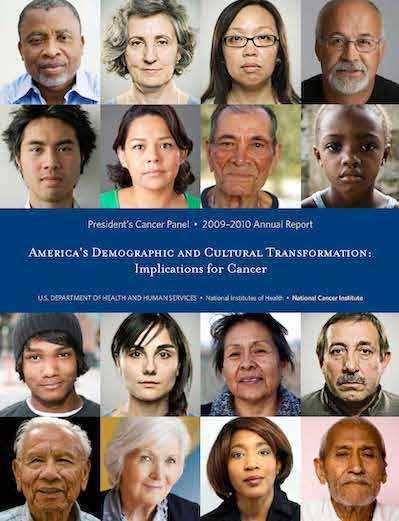Panel Recommendations in Action: Addressing Social Determinants of Health in Cancer Care
Cancer death rates continue to decrease in the United States thanks to improvements in cancer prevention, screening, treatment, and survivorship care. (1) However, this progress has reached specific populations more than others, leading to cancer-related disparities.
A key to addressing these disparities will be understanding social determinants of health—the conditions in the environments where people are born, live, learn, work, play, worship, and age that affect a wide range of health, functioning, and quality-of-life outcomes and risks. This means that a patient's economic, physical, and social environments may influence their health behaviors, decision-making, and access to treatment. Because of this, successful cancer care requires addressing patients' clinical needs, like prescribing medication, and non-clinical or social needs, like providing transportation to chemotherapy appointments. Unfortunately, many healthcare providers feel unequipped to ask about and support non-clinical aspects of their patients' lives.
The 2009–2010 President's Cancer Panel report, "America's Demographic and Cultural Transformation: Implications for Cancer," called on healthcare providers to "incorporate patient sociocultural and socioeconomic characteristics into patient care." The Panel commends efforts by National Cancer Program stakeholders to assist healthcare providers in understanding and addressing social determinants of health with their cancer patients. Efforts to address factors such as housing instability, food insecurity, and financial hardships allow patients to focus on their cancer treatment, thus improving cancer outcomes. Large and small organizations are working toward integrating patients' social needs and risks into cancer care. Progress includes:
- The Centers for Medicare and Medicaid Services Innovation's (CMMI) Enhancing Oncology Model (EOM) strives to improve oncology care coordination, promote patient-centered care, and reduce costs through payment incentives. Under this pilot program, participating oncology practices are expected to address their patients' health-related psychosocial needs and develop a plan for addressing health disparities. As of July 2023, 44 practices and three commercial payers are participating in EOM.
- The Office of the National Coordinator for Health Information Technology (ONC) focuses on four key areas to advance the interoperability and use of social determinants of health data: standards and data, policy, infrastructure, and implementation. Through collaborations with federal and non-federal stakeholders, ONC has created numerous programs and resources, such as the United States Core Data for Interoperability (USCDI) Version 2, which includes social determinants of health and other health equity-related data.
- In 2020, the National Cancer Institute (NCI) Small Business Innovation Research (SBIR) program solicited proposals to develop and evaluate software to support the incorporation of social determinants of health into oncology care. The three recipients—Pistevo Decision, Pieces, and XanthosHealth—are creating and piloting tools such as apps and other mobile health technologies for electronic health records to assess social determinants of health and assist oncology practices in addressing their patients' non-clinical needs.
- This year, the Centers for Medicare and Medicaid Services (CMS) proposed a new rule to pay for cancer patients' navigation services. Patient navigation is a healthcare service delivery model that aims to overcome individual barriers to accessing timely and quality cancer care. Across the cancer continuum, patient navigation programs address sociocultural barriers to care and the financial, communication, and psychosocial needs of cancer patients and their families. Although patient navigation programs differ in the types of services offered, they are instrumental in identifying and addressing disparities in cancer care.
The Panel acknowledges that collecting and integrating individual- and population-level data on social determinants of health is critical to providing the best care for each individual. Initiatives to aid healthcare providers in identifying and addressing their patients' social needs and risks reinforce the notion that there is no one-size-fits-all approach when treating a patient.
While there have been improvements with respect to cancer health disparities and health equity, more remains to be done. In autumn of 2023, the Panel will conduct a series of meetings to understand the current landscape of patient navigation and identify opportunities to use technology to address the clinical and non-clinical needs of cancer patients. With over 50 years advising the U.S. President, the Panel remains committed to improving cancer outcomes for all populations and helping the nation end cancer as we know it.
